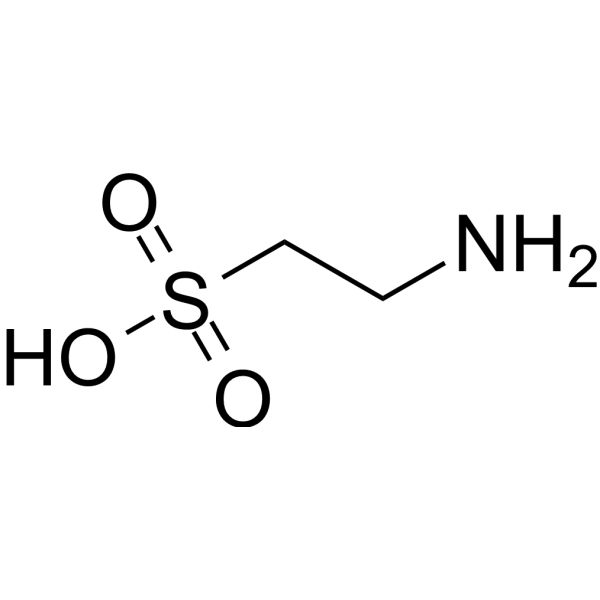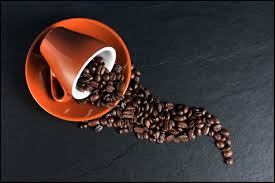
Unlocking Taurine: The Powerhouse for Body and Mind (and a Few Surprises)
tl;dr
Taurine shows strong benefits for physical performance, brain recovery, and cognitive enhancement when paired with caffeine. While some studies show mixed results, particularly one funded by a major company, most independent research supports taurine’s positive effects, especially in high-stress situations. It’s a key ingredient in Elevate Your Coffee for its ability to boost both mental and physical performance.
The Full Breakdown
Taurine is an intriguing molecule that’s been the subject of a growing body of research, showing impressive benefits across a wide range of health metrics. There's even some cutting-edge research exploring taurine’s role as a potential longevity molecule [1]. But when it comes to cognition, the story takes a unique and interesting turn. While taurine has demonstrated strong results in areas like physical performance and brain recovery, the studies around its cognitive benefits present a mix of positive outcomes and some surprising contradictions.
Let's start with the good news. Taurine supplementation has been researched in various contexts, particularly in high-stress environments like exercise and combat sports, where it is already well-known for improving physical performance [2][4][6]. But what about cognitive benefits? Well, there’s plenty of promising evidence here too. In several studies, taurine has been shown to enhance cognitive function when combined with caffeine. One study, for example, found that taurine paired with caffeine led to significant improvements in cognitive accuracy and reaction time [3]. Even more fascinating, when compared to caffeine alone, taurine appears to provide an additive benefit, particularly when it comes to cognitive performance under physical stress [2]. This was backed up by another study in which taurine enhanced cognition during exercise, showing that it offers benefits beyond what either taurine or exercise alone could deliver [4].
In more severe situations, such as traumatic brain injury, taurine has again shown its worth. Research has found that taurine supplementation not only aids in mental recovery but also improves survival rates and reduces the severity of brain damage [5]. The evidence is clear that taurine can play a vital role in supporting both physical and cognitive health, especially in high-stress or recovery scenarios.
But while taurine’s benefits in these areas are well-documented, not all the research on its cognitive effects aligns. Some studies report no cognitive improvement at all, and this is where things get a little, well, comical. One of the studies that found no cognitive benefit from taurine was funded by a large company that extensively uses taurine in its products [6]. Now, it’s not uncommon for people to be suspicious of studies funded by the companies that stand to gain from positive results, and it’s almost ironic that this industry-funded study didn’t show the desired outcome. Meanwhile, independent, publicly funded research tends to indicate the opposite, showing positive cognitive effects. This is one of those "you can't make this up" moments that leaves you scratching your head.
So, why would this industry-funded study show no effect? There are a few potential reasons, and they have to do with the study design. This particular research used what is known as a 'cross-over' design. In a cross-over study, the same participants are exposed to multiple treatments (like caffeine, taurine, or a placebo), with a 'washout' period in between to ensure the effects of one treatment don’t carry over to the next. The catch here is that the washout period was only 2 to 3 days, which might have been too short to fully clear the effects of the previous treatment. This could have blurred the lines between the effects of taurine and the control, potentially leading to the null results.
Another possible explanation lies in the timing of the cognitive tests. Most studies tend to conduct cognitive tests early in the day when participants are alert and less influenced by confounding factors like fatigue or different meals. However, in this study, the cognitive tests were conducted in the late afternoon, which could have influenced the results by introducing additional variability. To be clear, we can't say for certain that these factors were responsible for the lack of taurine's cognitive effect in this study, but they do provide plausible reasons for the discrepancy.
So, where does that leave us? While some studies, like the industry-funded one, suggest no cognitive benefit, the bulk of the evidence supports the idea that taurine, particularly when paired with caffeine, offers measurable improvements in cognition. This is especially true in high-stress environments or during physical exertion, where taurine’s benefits seem to be most pronounced.
Furthermore, even outside of cognitive benefits, taurine is well-known for its other health advantages, particularly in enhancing physical performance, improving recovery times, and aiding in brain health following traumatic injuries. The fact that taurine has proven so beneficial in these areas only adds to the case for including it in our formulation. While more research would certainly be welcome, especially focusing on taurine’s cognitive effects in non-exercising individuals, the current evidence makes a strong argument for taurine as a valuable ingredient in our blend.
In summary, we’ve included taurine in Elevate Your Coffee because it offers promising benefits, particularly when combined with caffeine. While the research on its direct cognitive effects may have some inconsistencies, taurine has consistently shown its value in improving mental performance under stress, enhancing physical endurance, and supporting overall brain health. We believe taurine is a worthwhile addition that complements the other ingredients in our coffee, delivering a balanced and effective boost for both mind and body.
The Reference Roundup
[1] Singh P, Gollapalli K, Mangiola S, et al. Taurine deficiency as a driver of aging. Science. 2023;380(6649):eabn9257. doi:10.1126/science.abn9257
[2] Ozan M, Buzdagli Y, Eyipinar CD, et al. Does Single or Combined Caffeine and Taurine Supplementation Improve Athletic and Cognitive Performance without Affecting Fatigue Level in Elite Boxers? A Double-Blind, Placebo-Controlled Study. Nutrients. 2022;14(20):4399. Published 2022 Oct 20. doi:10.3390/nu14204399
[3] Giles GE, Mahoney CR, Brunyé TT, Gardony AL, Taylor HA, Kanarek RB. Differential cognitive effects of energy drink ingredients: caffeine, taurine, and glucose. Pharmacol Biochem Behav. 2012;102(4):569-577. doi:10.1016/j.pbb.2012.07.004
[4] Chupel MU, Minuzzi LG, Furtado G, et al. Exercise and taurine in inflammation, cognition, and peripheral markers of blood-brain barrier integrity in older women. Appl Physiol Nutr Metab. 2018;43(7):733-741. doi:10.1139/apnm-2017-0775
[5] Vahdat M, Hosseini SA, Soltani F, Cheraghian B, Namjoonia M. The effects of Taurine supplementation on inflammatory markers and clinical outcomes in patients with traumatic brain injury: a double-blind randomized controlled trial. Nutr J. 2021;20(1):53. Published 2021 Jun 8. doi:10.1186/s12937-021-00712-6
[6] Kammerer M, Jaramillo JA, García A, Calderón JC, Valbuena LH. Effects of energy drink major bioactive compounds on the performance of young adults in fitness and cognitive tests: a randomized controlled trial. J Int Soc Sports Nutr. 2014;11(1):44. Published 2014 Nov 7. doi:10.1186/s12970-014-0044-9


